Urban Green Lab knows a little change goes a long way when it comes to living sustainably. To help Nashville make that little change, we’re helping everyone in the community find their lab.
In this installment, we’re interviewing Hank Cardwell, a Sustainable Classrooms trained teacher from Glencliff High School, and his daughter Lottie Cardwell, an eighth grader who does a weekly food waste audit in their home. Their holistic, family approach to living sustainably is heartwarming and inspiring!
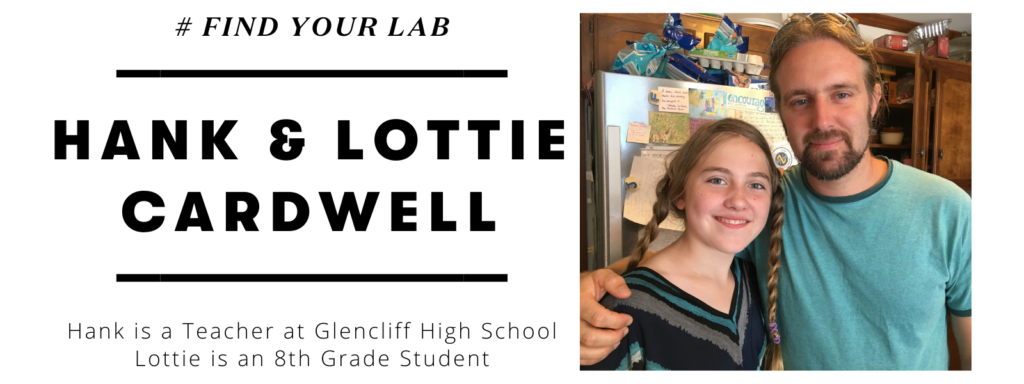
Hank & Lottie, where are your labs?
Hank: Literally, room 121. I’m an agriculture teacher at Glencliff High. In this room and in our greenhouses and gardens, I am trying to provide opportunities for fun, rich, thought-provoking, and relevant experiences with science and nature. In general, I find that kids, like adults, are not inspired by lessons; they are inspired by authentic experiences and relationships. I hope to be fostering a love of nature in combination with practical hands-on skills that kids carry with them throughout their lives.
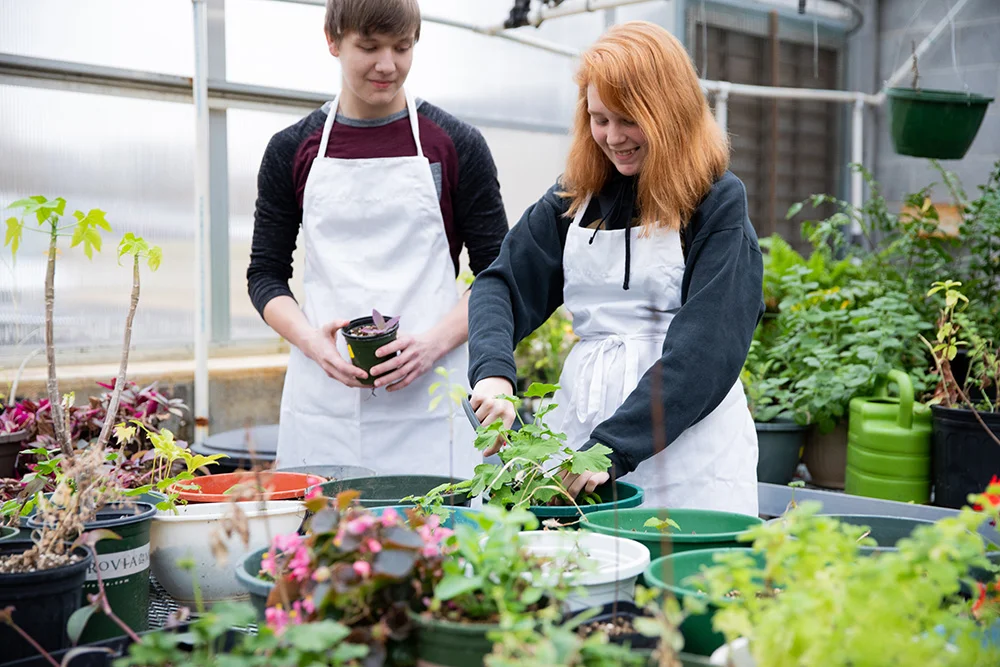
My other lab is my home where my family and I take sustainable actions with the emphasis on fun and frugality. We keep a garden and chickens, hang clothes to dry in the summer, shop at thrift stores, eat a mostly vegetarian diet, and monitor our waste production and recycling because these activities are pleasant, fulfilling, and save us money.
Lottie: My lab is at home. I bake bread in the kitchen, make yogurt, run three gardens which my family helped me start, and sew/design clothes and other items made out of fabric scraps!
Before I started doing all this, I read a lot about people who had tried to live more sustainably. The books agreed that finding out your major trash producers and weighing your trash were the first steps, so my dad and I dissected the trash and weighed it on the hottest day of summer. We went through the trash and recorded everything that comprised it–from the chicken wrappers to the dirty diapers. Then, we brainstormed some ideas to efficiently reduce some of our disposables.
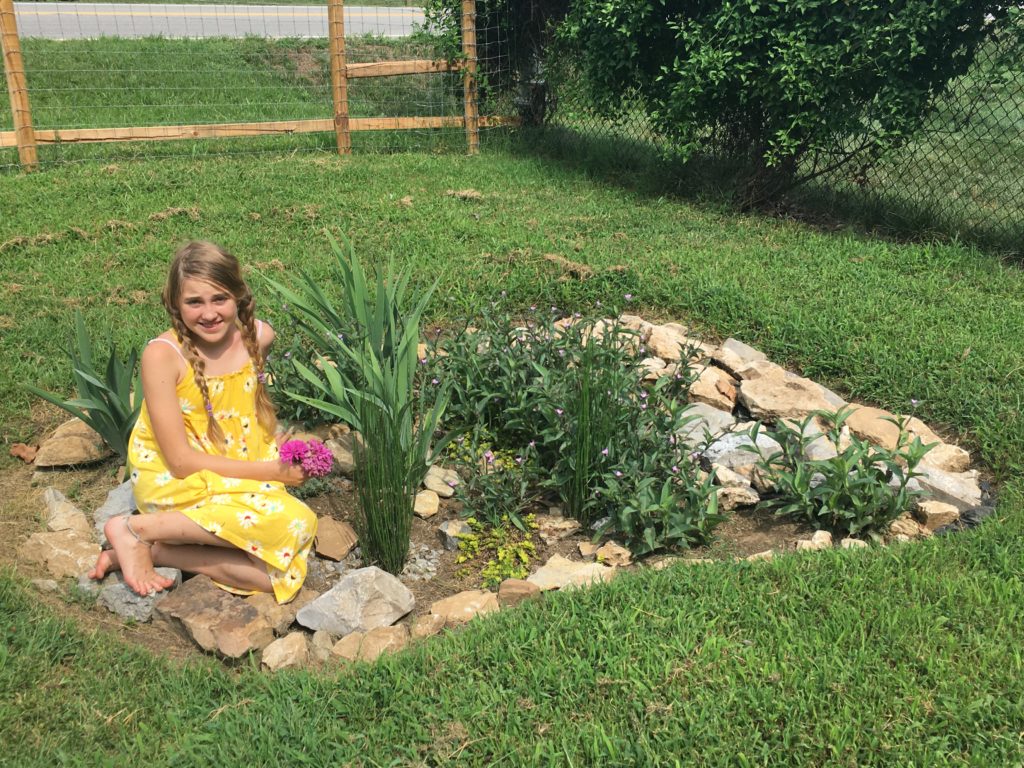
After that, I started to weigh the trash every week, and monitor the changes in our weekly consumption. I also researched different ways to eliminate some of our trash, and easy, reusable replacements. I love catalogues, so that part was really fun! Sometimes I would call a zero waste meeting, and as a family we would discuss solutions that seemed easily implementable. I started baking bread, and my dad helped me start three gardens ( a rain garden, and two flower/herb beds). I recently finished a dress made out of old fabric as well! These are really fun/calming things that I can do to save the earth and honestly, I enjoy them a lot more than I thought I would at first.
What has been your biggest challenge or question?
Hank: My biggest challenge has been fighting both cynicism and self-righteousness in my students, friends, family, and in myself.
Lottie: I guess when I first listened to Greta Thunberg’s “How Dare You” speech, I kind of panicked. It was hard for me to convince myself that I, a thirteen year old, could make a difference, considering the enormity of the issue. That was my first hurdle. But now it’s more like, “How can I find hope?” and “ How can I make a difference with the time I have?” It’s just hard to accept that you can’t do it all, or even do most of it at once. You have to ease yourself in, and remind yourself to be hopeful even if things look tough. We can do this, but it will require change!
How did you get interested in sustainable living?
Hank: I grew up on a small homestead https://urbangreenlab.org/fyl-hank-and-lottie/near the Nashville airport and so always had a home economy that produced economic value without producing cash. Living cheaply and living sustainably have similar features, and once I began to learn more about sustainability in school, it just increased my interest in what my family was already doing and gave me a new perspective on how these actions were beneficial for the planet.
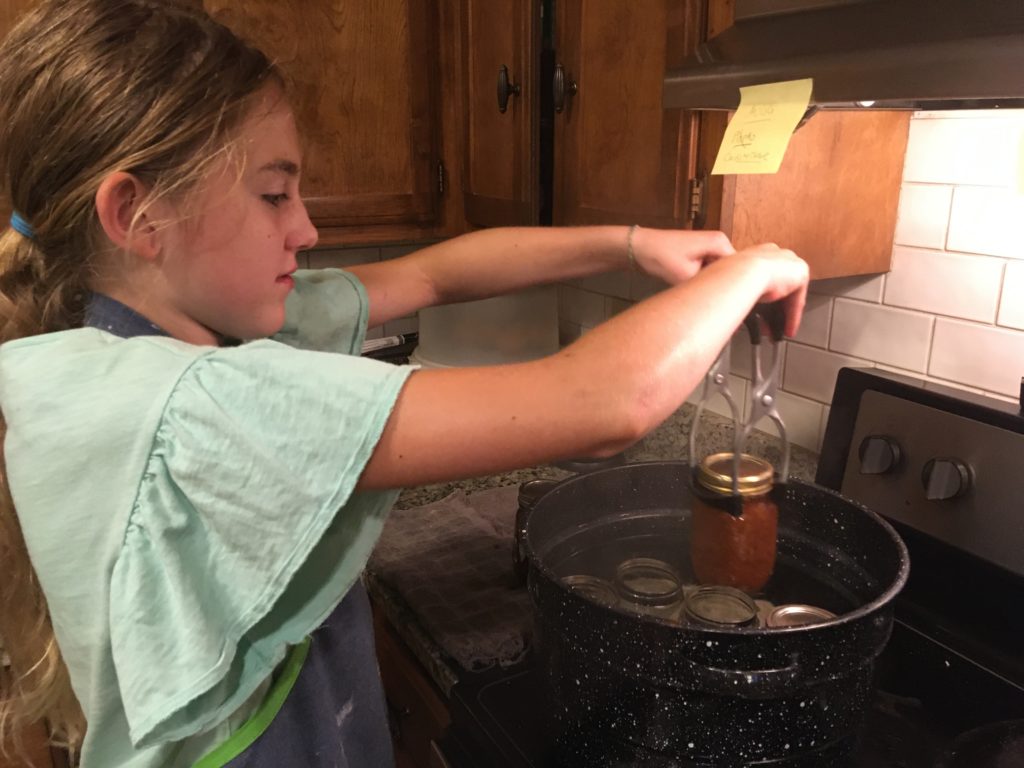
Lottie: I knew climate change was an issue, but I always just assumed the people in charge were going to take care of it. However, one day I was on my Google Classroom for a biology class and I saw that one of my friends, Blythe (thank you so much Blythe!) had posted Greta Thunberg’s “ How Dare You Speech” and then I really realized the reality of humanity’s destructiveness. I realized I had to do something. Anything. So then I started reading and researching about the issue and how people could be a part of the change, and it was really cool and inspiring. Then, I decided to try.
What keeps you motivated to make sustainable changes?
Hank: My wife, Lauren, and our children are really inspiring to me. They continuously challenge our family to look for more sustainable ways of doing things in our home and to promote sustainability in our community.
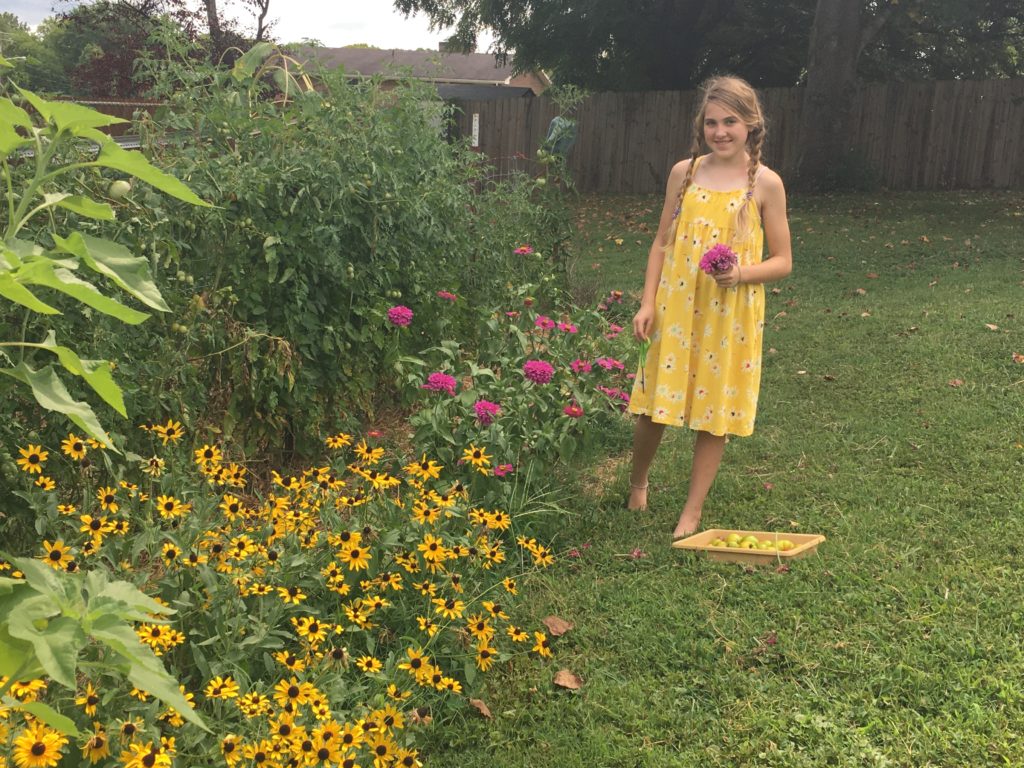
Lottie: To be honest, sometimes it’s hard. However, Greta Thunberg’s speeches really push me to keep trying, to keep going on this crazy journey. Also, when I study history I can see that it hasn’t been this way forever. Humans have lived sustainably before, and we can do it again. Not that I want us to go back to a time without vaccines or healthcare, but humanity’s always invented a new way even when the path looked bleak. Also, being out in nature helps calm me and gives me hope. This life, this world, is worth fighting for.
What are you most proud of?
Hank: I’m proud of our ag program here at Glencliff. We started as an after-school garden club with eight tomato plants and six students ten years ago and, thanks to the work of many, many co-workers, community partners, and students, we have a formal pathway of agriculture classes with multiple partners and initiatives year after year.
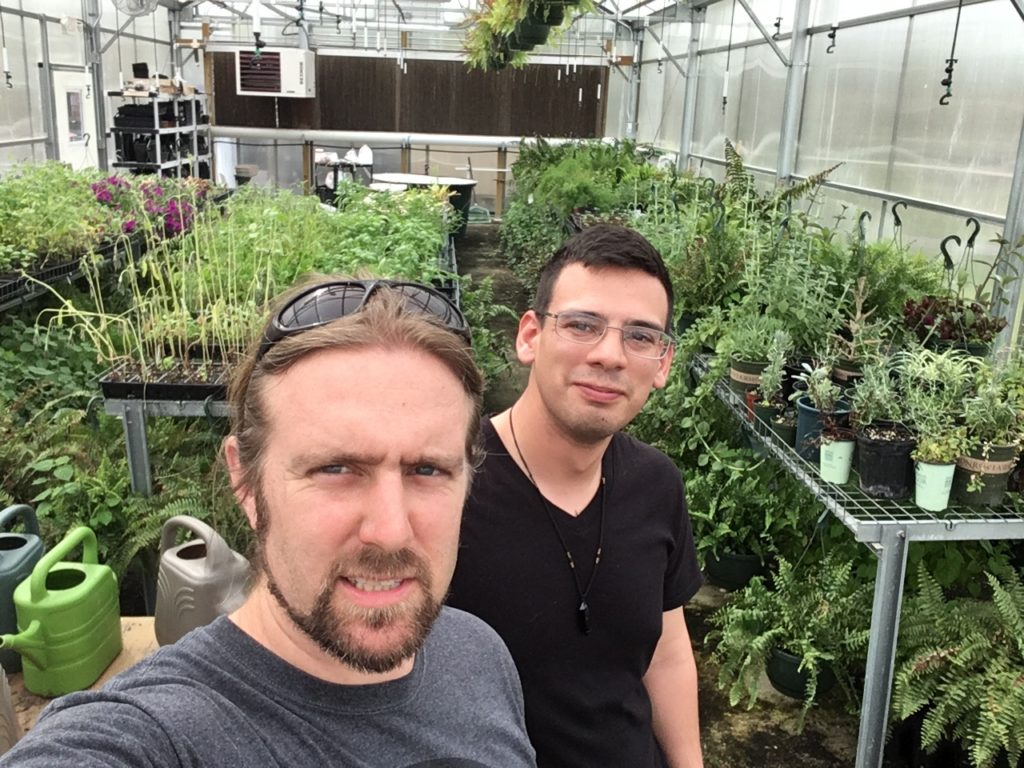
Lottie: I am proud that I am making a change to help confront this crisis even though I am just a kid.
Describe a time when you inspired others to live more sustainably.
Hank: Well, I can’t say that I have ever thought of myself as inspiring. I am awkward and nerdy, as a teacher and a parent. Having been in both roles for some time, though, I notice more and more how I try to copy other teachers and other parents who are doing great work. It just goes to follow, then, that our students and our children will copy us. They don’t have to see amazing accomplishments and public praise, either. We can all be inspiring just by doing the work and demonstrating our priorities and our passions every day.

Lottie: I think I inspire my family to live more sustainably, although I know I can be way too intense and dramatic about it sometimes. (Daddy is lying, he inspires his students all the time, and he and Mama encourage me too.)
Where is your favorite local spot to get in touch with nature?
Hank: I love a gorgeous hike or a breathtaking view as much as the next person, but I honestly enjoy nature every day just going about my life. Watching mockingbirds harass crows on the electric lines, watching squirrels chase each other around the trees, noticing an interesting moss or lichen on the side of the road wandering around my neighborhood, checking out the sky on these crisp nights… These are all ways that we can all connect with nature each and every day.
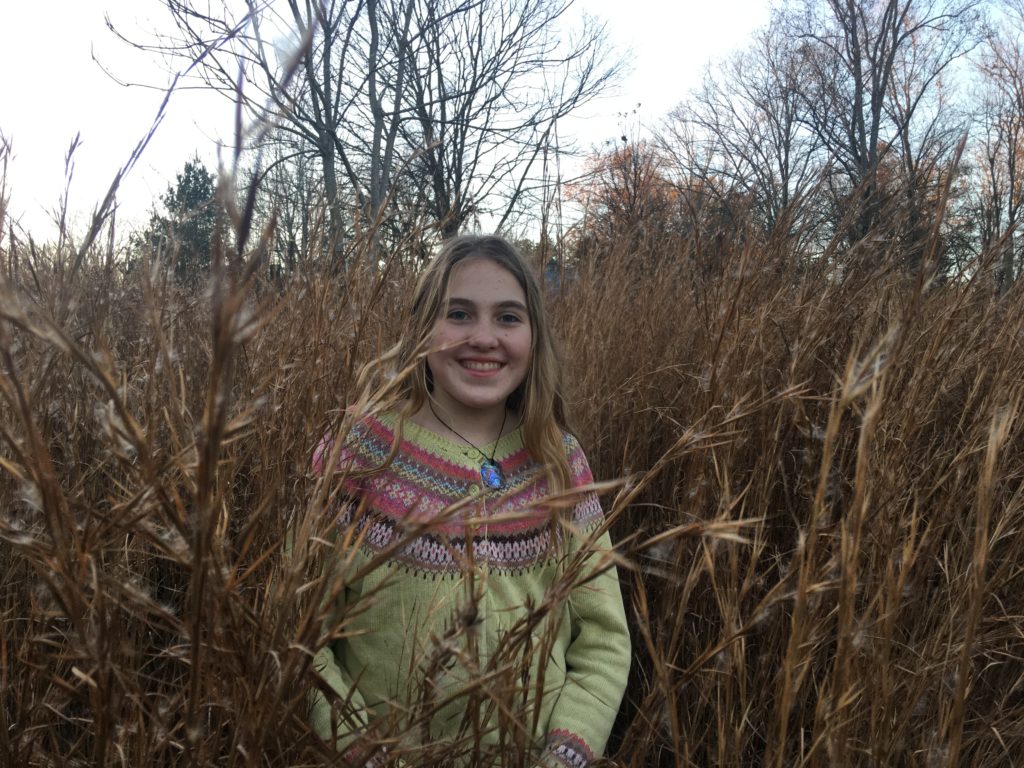
Lottie: I love to go to my grandmother and grandfather’s house. My granddad built two cabins and a barn, and they have a creek and woods, so it is really fun to go there and explore and play with my brothers. It’s really peaceful, too. I also enjoy observing the birds and squirrels. Lem, one of my brothers, spotted a squirrel building a nest recently, and there have been some giant flocks of starlings migrating lately. Once we even heard a swoosh when they took off, there were so many of them!
Name a sustainability champion you look up to.
Lottie: I admire Greta Thunberg so much (as you can probably tell by reading this interview). She’s really inspiring to me because she is a teen (like me) but is making this giant impact and calling people to wake up to reality. She’s so brave and strong, and she tells the truth. Also, she practices what she preaches and so I feel that much more inspired by her. After all, if she can travel the world via train, electric bus, and sailboat to make speeches about climate change while simultaneously acting responsibly and doing school, then I can make a difference too. And you!!
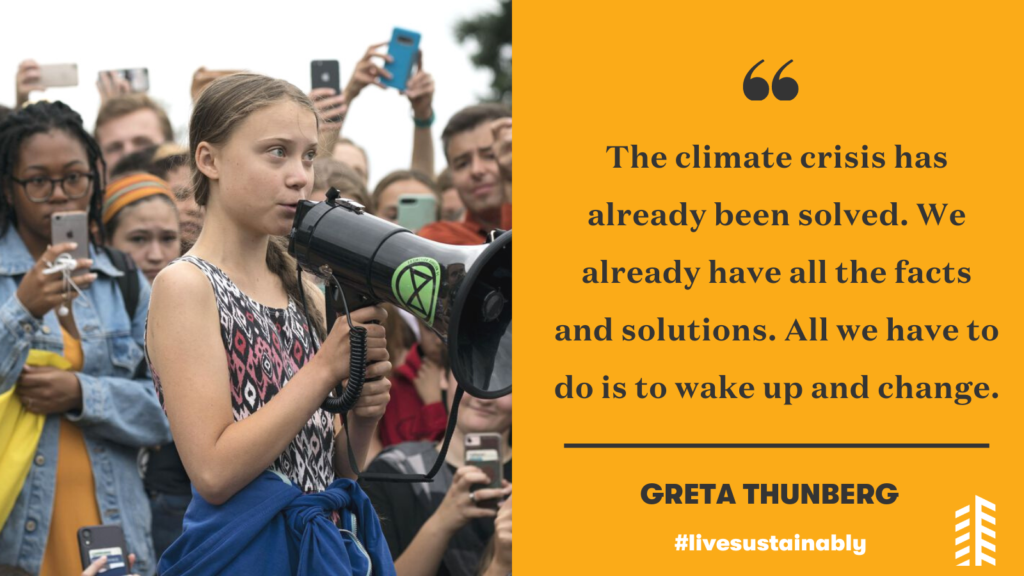
What advice do you have for others to make sustainable changes?
Lottie: Just start. When I first listened to that speech, I became overwhelmed, and that’s easy to do when you are facing a problem as overarching as the climate crisis. But, as Greta Thunberg said, “The climate crisis has already been solved. We already have all the facts and solutions. All we have to do is wake up and change.”
Remember, “You are never too small to make a difference.” -Greta Thunberg
Hank: I’m going to cheat off of Lottie here and agree: Just start. Make a list of potential actions and take just one of them. Can you turn your winter thermostat down two degrees? Can you rinse and re-use some Ziploc bags? Can you be more mindful about eating leftovers? Could you purchase some items at thrift stores? So many of the things you can do to help save the plant also save you money. If you want, this money can be invested in some of those more expensive sustainable changes: the organic lettuce, free-trade coffee, etc.
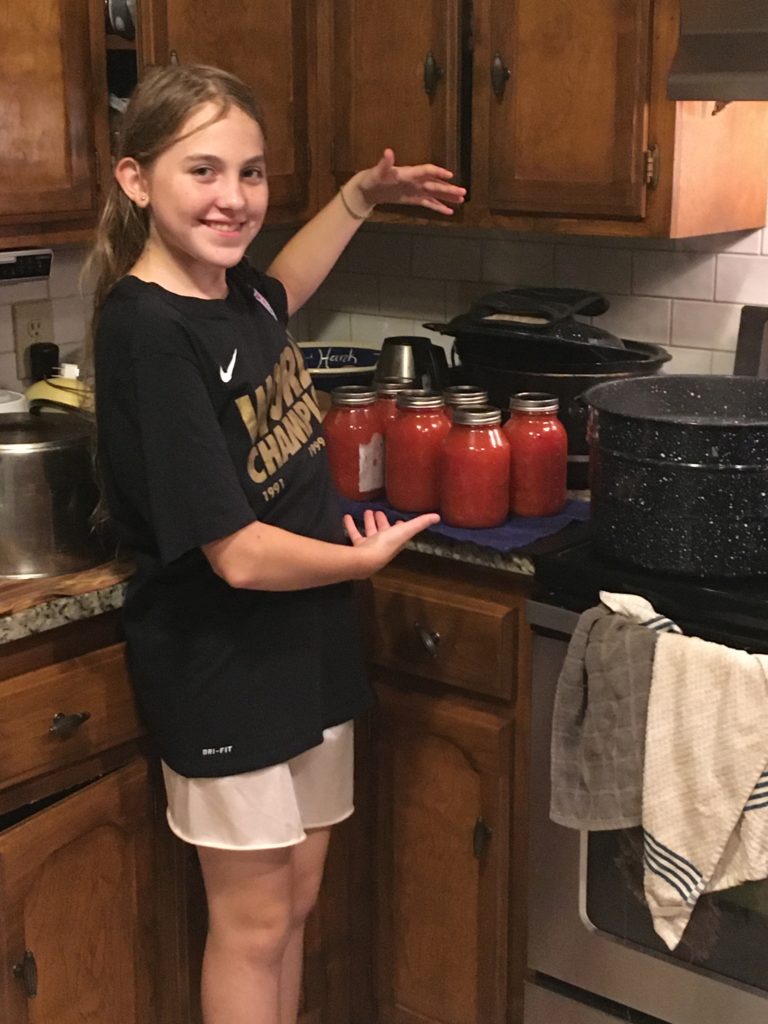
What is your sustainable vision for the city of Nashville?
Lottie: We need to start changing into a green way of life to allow me, and other children growing up now, a clean future. Nashville needs to switch to solar energy and make green ways of life, including shopping, transportation, and food accessible to all in order to honor the children who will have to live with the future consequences of a deteriorating planet. (Look to the scientists for how to do this and to those who have come before and already done this.)
Hank: For Nashville, I think the first priority needs to be addressing housing and educational inequality. Too many of our residents are struggling at a basic level to feed and house themselves and their families. Our school system, which I love, has become a tangled maze of magnets, optional schools, and charter schools more easily navigated by our affluent families. The pandemic has only magnified these inequalities. As we address the critical issues of transportation, energy use, waste, and air and water pollution, we have to make sure that the city works for all of its residents.
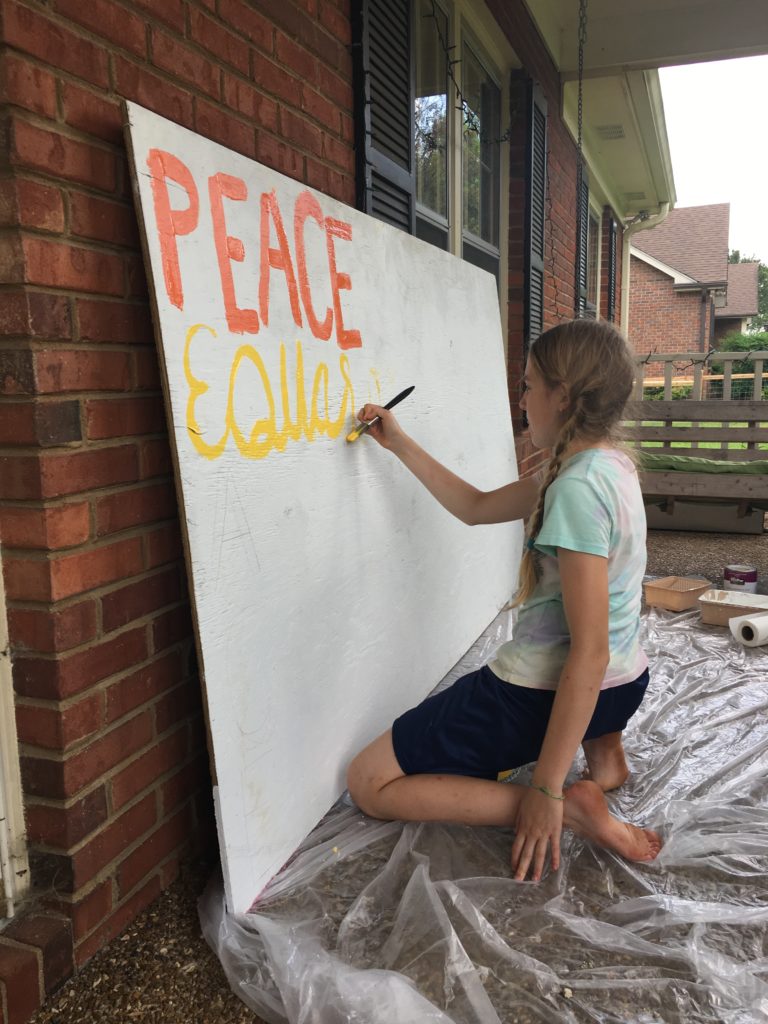
Urban Green Lab thrives due to charitable support from readers like you. Stay up-to-date with news, events, and more blog posts by signing up for our email newsletter.